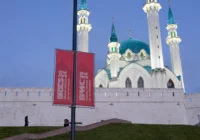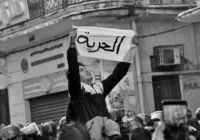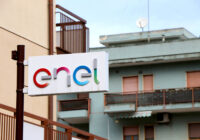A recent article on the BBC using data from the Arab Barometer survey asked the question, “Could Morocco see the next uprising after Sudan and Algeria?” While it was selective in its choice of data points, for example, attitudes toward religion, the point of the article, which echoes Moroccan King Mohammed VI’s recent messages, is that the government’s programs are not working in terms of equitable distribution of opportunities and economic development. More importantly, many Moroccans, especially the youth, are feeling marginalized and hopeless about their prospects for a decent life.
As one person mentioned, “There is no care here in Morocco for the population. It‘s the lack of care that makes people migrate.” The data reflects this observation. Almost half of Moroccans are considering emigrating. The proportion is up sharply after a decade of decline, the survey indicated. The BBC reports: “About 45% of the population is under 24 and on most issues the country is riven by a generational split. Some 70% of adults under 30 want to emigrate versus 22% of people in their forties. While half of over 60-year-olds have a positive view of the government, the figure for those aged 18-29 is 18%.”
Does this mean that protest marches to overthrow the current government are coming in the near future? A more likely scenario is the article’s conclusion that “Morocco is at a crossroads.” It can reduce corruption, realign its development priorities to focus on building worthwhile jobs and public services, and to open the political space for greater citizen participation. Or it can muddle along, disabling dreams of a better life that reaches into the interior of the country as well as the urban coastal areas, and see if crises threaten the status quo.
Morocco is no stranger to protests. They occur frequently, focused either on specific sectors such as public health workers or teachers, or regional grievances such as those in the Rif region that continue to simmer as the government is still dragging in efforts to promote prosperity and upgrade services in the north. Facing a slower growth rate and a government, including parliament, that prefers to follow than to lead development and reform efforts, prospects for real constructive change are unlikely without a jolt to the body politic.
Moroccan Ministries
Adding to the discontent in Morocco is the bickering among ministries about the transparency and reliability of government data. Morocco World News ran an excellent article in which the president of the High Commission for Planning (HCP), Ahmed Lahlimi Alami, called out several ministers and high-ranking government officials for not sharing “data on the performance of their respective departments’ performances.”
HCP data is always seen to be credible and reliable, so this charge merits close attention. Tamba François Koundouno writes: “As the main provider of economic, demographic, and statistical data on Morocco, HCP prides itself on its independence and the fact that all departments of Morocco’s public administration have the obligation to share their data with the institution.”
There is a disparity between figures released by the HCP and the trade and investment ministry concerning job creation. “In that particular case, HCP’s data on employment in Morocco, which offered a grim reading of the Moroccan labor market, was the exact opposite of the government’s ‘lofty’ figures and its insistence on delivering a target number of employments HCP rightly predicted it could not attain,” Koundouno mentions.
Without a reliable source of data inside the government that makes its information available widely, the country lacks credibility with analysts, investors, researchers and others who rely on HCP data for their reports, predictions and analyses. If the HCP’s mission is to develop updated and accurate data on “Morocco’s economic and political trajectories,” a lack of transparency will only undermine the country’s ability to attract investors and build partnerships to promote its economic and political goals. What’s equally important is that by having up-to-date and reliable data, the HCP can provide international financial institutions and rating agencies with critical data for making accurate log projections and rankings.
This relates back to the first article in that the scope of the challenges to Morocco’s development cannot be a “feel-good” exercise so that the government can pat itself on the back. Morocco faces serious economic challenges that will not disappear through a lack of accurate reporting.
The rainy season is coming in Morocco and with it an uptick in the agricultural sector. Yet there are signs of public frustration, including political chanting at football matches and popular rap songs that recently landed one rapper in jail for a year. Lahlimi Alami pointed out that, “More than poverty, social disparities create frustrations that may trigger protests. These disparities are often viewed as a result of an illegitimate accumulation of wealth.”
Since a quarter of Moroccans are either poor or at risk of poverty, according to a recent World Bank report, and the kingdom ranks 123rd in the UN’s Human Development Index, the government needs to seriously recommit to support economic, social and political development.
Algeria’s New President
Looking at Algeria, there is a different challenge: installing a regime that has little or no legitimacy with the people, through elections that lack transparency, credibility and popular support. While the army was content to push ahead with the presidential election on December 12 that was at odds with the demands of anti-government demonstrators, the consequences of this faux election mirror the simplistic view of the West when fingers with ink-stains somehow represent democracy. Voting does not make a government legitimate, but the army and elites seem to be willing to continue with the charade to force a sense of normalcy on the political life of Algeria.
As an article by Dalia Ghanem on Carnegie Middle East opined, “Algeria will end up with a president who will suffer from a lack of legitimacy. This will put him under enormous pressure, caught between citizens who have increased their demands and changed their perception of the institutions and elites governing them and the military that brought him to power. With such a lack of legitimacy, the president will not be able to meet the political and socioeconomic challenges lying ahead.”
The fact that there is not a “central committee” or other mechanism representing the agenda of the demonstrators — who have protested weekly for nearly a year — has given the Algerian army a breathing spell to impose its will. But that does not mean that President Abdelmadjid Tebboune will automatically achieve legitimacy with the people. More likely, the new president “will need to negotiate with the popular movement immediately after the election.”
How this will play out is still a crystal ball exercise. Given that the popular movement reflects a variety of concerns from wanting more resources for local economic and social development, to empowering civil and human rights, expanding opportunities for political participation, and dealing with corruption and an unbalanced set of national economic initiatives, Tebboune will not be able to reach agreements on priorities and actions quickly, thus feeding popular discontent. What this means for the largest country in Africa by size is a challenge of major proportions.
*[A version of this article was published by Morocco on the Move.]
The views expressed in this article are the author’s own and do not necessarily reflect Fair Observer’s editorial policy.
Support Fair Observer
We rely on your support for our independence, diversity and quality.
For more than 10 years, Fair Observer has been free, fair and independent. No billionaire owns us, no advertisers control us. We are a reader-supported nonprofit. Unlike many other publications, we keep our content free for readers regardless of where they live or whether they can afford to pay. We have no paywalls and no ads.
In the post-truth era of fake news, echo chambers and filter bubbles, we publish a plurality of perspectives from around the world. Anyone can publish with us, but everyone goes through a rigorous editorial process. So, you get fact-checked, well-reasoned content instead of noise.
We publish 2,500+ voices from 90+ countries. We also conduct education and training programs
on subjects ranging from digital media and journalism to writing and critical thinking. This
doesn’t come cheap. Servers, editors, trainers and web developers cost
money.
Please consider supporting us on a regular basis as a recurring donor or a
sustaining member.
Will you support FO’s journalism?
We rely on your support for our independence, diversity and quality.






